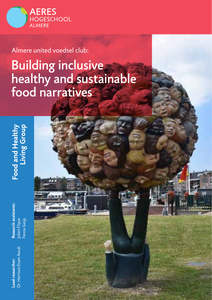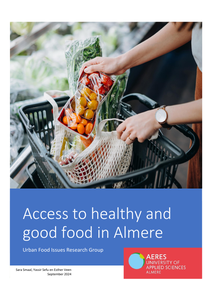The design of health game rewards for preadolescents Videogames are a promising strategy for child health interventions, but their impact can vary depending on the game mechanics used. This study investigated achievement-based ‘rewards’ and their design among preadolescents (8-12 years) to assess their effect and explain how they work. In a 2 (game reward achievement system: social vs. personal) x 2 (game reward context: in-game vs. out-game) between-subjects design, 178 children were randomly assigned to one of four conditions. Findings indicated that a ‘personal’ achievement system (showing one’s own high scores) led to more attention and less frustration than a ‘social’ achievement system (showing also high scores of others) which, in turn, increased children’s motivation to make healthy food choices. Furthermore, ‘out’-game rewards (tangible stickers allocated outside the game environment) were liked more than ‘in’-game rewards (virtual stickers allocated in the game environment), leading to greater satisfaction and, in turn, a higher motivation to make healthy food choices.
LINK
This booklet outlines a 'court case' about shaming someone's food choices. Dit boekwerk behandelt een 'rechtszaak' over het te schande maken van iemands voedselkeuzes.
MULTIFILE

MULTIFILE
The aim was to study the needs, opportunities and effects of citizen engagement in the urban food system transition. This addresses the issue of - ‘how’, ‘in what ways’ and ‘through what methods’ - citizens can be engaged in the developments towards a more sustainable and healthy regional food system. The research project sought to investigate the roles citizen engagement can take in the transformation of the urban food environment towards healthier and sustainable food consumption patterns. The study covers desired food futures; food discourse; the message our bodies convey about our eating habits; the effect of Covid-19 on food pattern transformations; the term 'organic' in relation to food; mass media as a source of information about food.
MULTIFILE

The transition towards a sustainable and healthy food system is one of the major sustainability challenges of today, next to the energy transition and the transition from a linear to circular economy. This paper provides a timely and evidence-based contribution to better understand the complex processes of institutional change and transformative social-ecological innovation that takes place in the food transition, through a case study of an open innovation and food transition network in The Netherlands, the South-Holland Food Family (Zuid-Hollandse Voedselfamilie). This network is supported by the provincial government and many partners, with the ambition to realize more sustainable agricultural and food chains, offering healthy, sustainable and affordable food for everyone in the Province of South-Holland in five to ten years from now. This ambition cannot be achieved through optimising the current food system. A transition is needed – a fundamental change of the food system’s structure, culture and practice. The Province has adopted a transition approach in its 2016 Innovation Agenda for Sustainable Agriculture. This paper provides an institutional analysis of how the transition approach has been established and developed in practice. Our main research question is what interventions and actions have shaped the transition approach and how does the dynamic interplay between actors and institutional structures influence institutional change, by analysing a series of closely related action situations and their context, looking at 'structure' and 'agency', and at the output-outcomes-impact of these action situations. For this purpose, we use the Transformative Social-Ecological Innovation (TSEI)-framework to study the dynamic interplay between actors and institutional structures influencing institutional change. The example of TSEI-framework application in this paper shows when and how local agents change the institutional context itself, which provides relevant insights on institutional work and the mutually constitutive nature of structure and agency. Above institutional analysis also shows the pivotal role of a number of actors, such as network facilitators and provincial minister, and their capability and skills to combine formal and informal institutional environments and logics and mobilize resources, thereby legitimizing and supporting the change effort. The results are indicative of the importance of institutional structures as both facilitating (i.e., the province’s policies) and limiting (e.g. land ownership) transition dynamics.
DOCUMENT

This report delves into food insecurity in Almere, focusing on how residents with limited financial means access and consume (healthy) food. The study employed an action research approach, engaging directly with affected individuals and stakeholders to understand their challenges and co-develop solutions. The primary aim was to empower participants by amplifying their voices and providing actionable insights into addressing food insecurity in the community. To achieve this aim we conducted workshops, in-depth interviews and a study using WhatsApp.
MULTIFILE

More and more people worldwide live in urban areas, and these areas face many problems, of which a sustainable food provision is one. In this paper we aim to show that a transition towards more sustainable, regionally organized food systems strongly contributes to green, livable cities. The article describes a case study in the Dutch region of Arnhem–Nijmegen. Partners of a network on sustainable food in this region were interviewed on how they expect the food system to develop, and in design studies possible futures are explored. Both the interviews and the designs give support to the idea that indeed sustainable food systems can be developed to contribute to green livable cities. They show that the quality and meaning of existing green areas can be raised; new areas can be added to a public green system, and connections with green surroundings are enforced. They also show that inhabitants or consumers can be stimulated to become so called food citizens, highlighting that the relation of food systems and livable cities is a very close one.
MULTIFILE

Unhealthy eating behaviors and low levels of physical activity are major problems in adolescents and young adults in vocational education. To develop effective intervention programs, more research is needed to understand how different types of motivation contribute to health behaviors. In the present study, Self-Determination Theory is used to examine how motivation contributes to dietary and physical activity behaviors in vocational students. This cross-sectional study included 809 students (mean age 17.8 ± 1.9 years) attending vocational education in the Netherlands. Linear multilevel regression analyses were used to investigate the association between types of motivation and dietary and physical activity behaviors. Amotivation was negatively associated with breakfast frequency and positively associated with diet soda consumption and high-calorie between-meal snacks. A positive association was found between autonomous motivation and water intake, breakfast frequency, fruit intake, and moderate-to-vigorous physical activity. Autonomous motivation was negatively associated with the consumption of unhealthy products. Controlled motivation was not associated with physical activity or dietary behaviors. Different types of motivation seem to explain either healthy or unhealthy dietary behaviors in vocational students. Autonomous motivation, in particular, was shown to be associated with healthy behaviors and could therefore be a valuable intervention target.
DOCUMENT

Publicatie bij de rede van Feike Ruurd van der Leij, uitgesproken bij de aanvaarding van de functie van lector Health & Food aan Hogeschool Inholland in Amsterdam op 11 oktober 2021
MULTIFILE

Unhealthy lifestyle behaviours are common among vocational students and increase their risk of non-communicable diseases later in life. Unfortunately, only a limited number of school-based healthy lifestyle interventions have been developed for vocational students. Moreover, there is no evidence that these interventions are effective. They have often been developed by professionals without involving students and therefore may not align with the target group’s perceptions and needs. We used a participatory design approach to develop an intervention to promote healthy physical activity and dietary behaviours, in co-creation with vocational students. ‘Contextmapping’ was used to assess student conscious and subconscious motivation for a healthy lifestyle (n = 27, ages 17-26 years). All sessions and interviews were recorded and transcribed. The transcripts were analysed using framework analysis. Contextual characteristics that influenced student lives were their peers, family and short-term motives like earning money, being cool and looking good. In addition, they often had a passive attitude towards daily life, were unaware of their health illiteracy and being healthy was a goal for the distant future. These findings led to four design concepts that converged in a peer-led healthy lifestyle intervention that includes a social media campaign and activities to demonstrate and practice specific health behaviours among vocational students.
DOCUMENT
